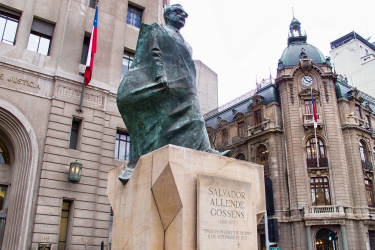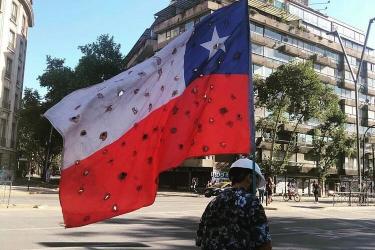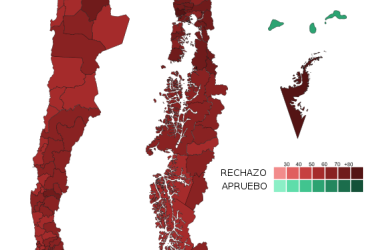Álvaro García Linera argues that to defeat the extreme right, the left must pursue greater wealth redistribution, not moderation or conciliation.
Chile
Richard Fidler — On the 50th anniversary of the coup in Chile, it seems appropriate to look back at the Chilean experience and to think about the lessons to be learned for today’s Left and progressive movements.
The victory of the Rejection option on the wording of the new Chilean Constitution has raised a number of questions for internationalists. How is it possible that the struggle for the new Constitution, that was demanded by the mass popular revolt of 2019 and which was followed by a resounding victory of almost 80% in the first plebiscite that opened the constitutional process, achieved only 38% popular approval a short time later?
What one year ago seemed like it would be a formality to ratify the constitutional process ended up being a crushing defeat for progressive Chilean forces. The Rechazo (reject) vote beat the Apruebo (approve) vote by nearly 25 percentage points in a referendum with mandatory voting—in contrast to recent elections—and record turnout. Rechazo groups celebrated the win against “revanchism” and “radical Octoberism” (a reference to the 2019 uprising) and a constitution they considered “refoundational” and contrary to “the soul of Chile” and “Chileans’ common sense.”
By J. Patrice McSherry
March 2, 2020 — Links International Journal of Socialist Renewal reposted from NACLA — The social uprising in Chile has now reached its fourth month. Masses of people continue to protest and demand structural change despite ferocious repression—mainly at the hands of the militarized Carabineros police force—which has revived traumatic memories. Now, Chileans are looking ahead to a plebiscite that may open the way to a new Constitution. The dictatorship-era charter has been a major obstacle to change over the past three decades. Redrafting the constitution is a key demand in Chileans’ sweeping rebuke of the status quo.



